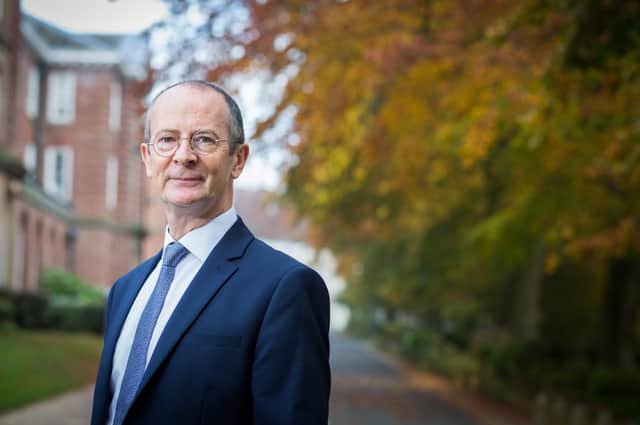Welcome to Yorkshire and tourism policy credibility tests – Rhodri Thomas


My reading of the report suggests that Welcome to Yorkshire would fall short of its recommendations for good practice. The tortured recent history of our regional tourist board has not surprised many of us who take a professional interest in studying tourism and destination management.
Advertisement
Hide AdAdvertisement
Hide AdDMOs are arm’s length bodies that only exist because there is what economists call a market failure – those who benefit the most from the promotion of tourism in Yorkshire are not prepared to pay for it (or at least not for enough of it). Instead, they rely on the population of Yorkshire to do so via its councils.


Yet, some DMOs – like ours – are encouraged to speak and act like businesses rather than as public or quasi-public agencies. This may be superficially attractive, but it also restricts what the organisation tries to do and whose views it considers valuable. This approach usually leads to failure over the medium-term.
There are obvious differences between intervening in tourism markets using public money (which is what DMOs do) and being a real commercial venture. Jet2.com, for example, is a major local employer but does not expect Leeds City Council or adjacent authorities to pick up the tab for promoting flights to Malaga or any other destination simply because the company is located here and, as a consequence, creates jobs for the local population.
Advertisement
Hide AdAdvertisement
Hide AdThere are good reasons why local authorities would pay for a DMO but they should do so with conditions. Instead of always focusing on visitor numbers, they could start with a broader canvas and consider what tourism might do for our society and the region.


An almost exclusive focus on promoting Yorkshire as a place to visit in ever increasing numbers misses the many opportunities that this sector offers to the people living in the region. It seems to me that the public policy challenge is not whether local councils should stump up money to overcome a market failure relating to the promotion of a destination, but whether the goals of tourism policy are sufficiently clearly articulated, expansive and – indeed – integrated with other policy domains.
As we consider what next for Welcome to Yorkshire and how it should be funded, I would like to propose some questions that might take our regional tourism policy deliberations in a different direction.
Why do we want to attract visitors to Yorkshire? The potential financial gains from tourism are obvious to many. What is less clear, however, is how much of the gain stays in Yorkshire and to whom the benefits accrue.
Advertisement
Hide AdAdvertisement
Hide AdShould we expect something in return from those we are supporting? We might, for example, have expectations of training, quality of service and experience, environmental performance or whatever. Why wouldn’t our investment in tourism come with strings attached?
Are we combining our thinking on tourism with our concerns over the major challenges of our time, notably the environment? Are we integrating tourism with transport policies, environmental policies, business support policies and policies on social cohesion, for example?
Are we thinking about tourism as a means of enriching the lives of those living in Yorkshire? With some thought, many aspects of our tourism offer could add to the well-being of residents in a similar way to the outputs of our cultural sector.
And finally, are we actively involved in smart tourism? Smart tourism is about using technological capacities to enhance innovation, competitiveness and the tourist experience. This is an area where a DMO might offer much needed leadership.
Advertisement
Hide AdAdvertisement
Hide AdMany of my observations would be less relevant if tourism businesses paid for their DMO. Because they will not, we should draw on the wealth of national and international evidence available to determine the aspirations and approaches of our DMO. By doing so, I suspect new approaches would emerge and deliver more for the region.
Professor Rhodri Thomas is Dean of Leeds Beckett University’s School of Events, Tourism and Hospitality Management, and a former Welcome to Yorkshire board member.
Support The Yorkshire Post and become a subscriber today. Your subscription will help us to continue to bring quality news to the people of Yorkshire. In return, you’ll see fewer ads on site, get free access to our app, receive exclusive members-only offers and access to all premium content and columns. Click here to subscribe.
Comment Guidelines
National World encourages reader discussion on our stories. User feedback, insights and back-and-forth exchanges add a rich layer of context to reporting. Please review our Community Guidelines before commenting.